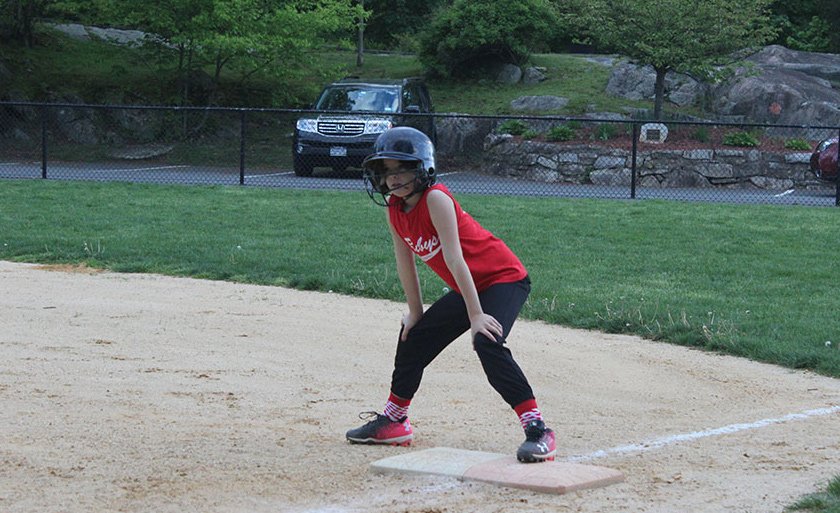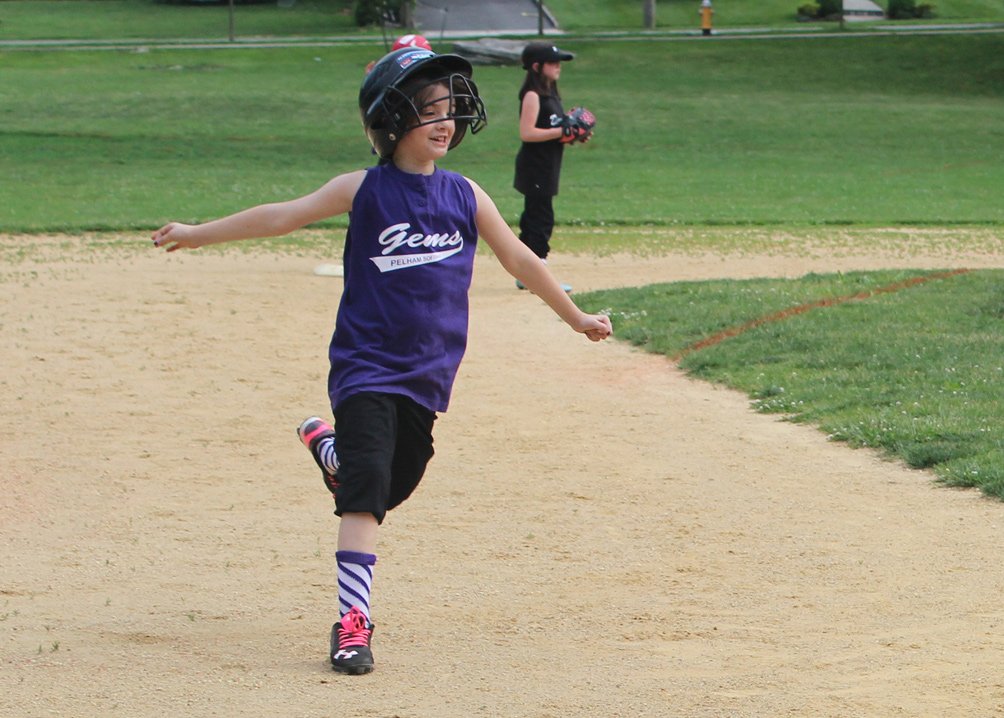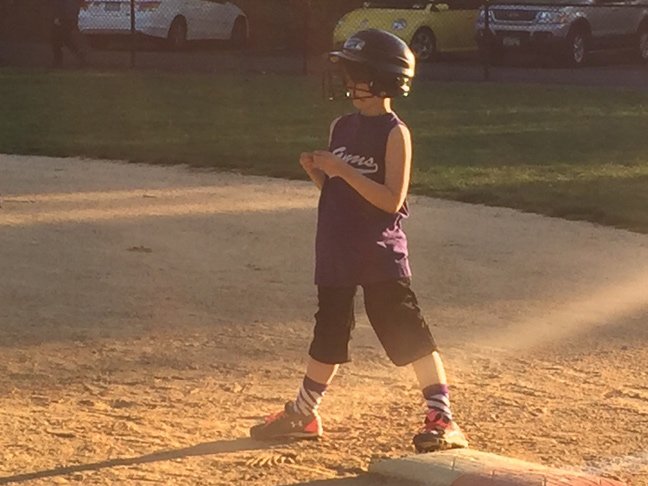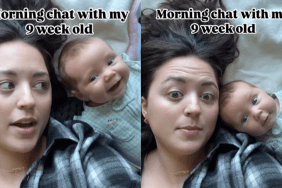
A couple of years ago, I wrote a piece for Momtastic about what a crappy sports mom I was. My daughter was playing soccer at the time, and I think I summed up my feelings best when I said, “I’m dying to bring a book, and just sit back and read, but I can’t face the judgment of the water-bringing, ball-remembering, soccer-knowledgable parents.”
Confession: I never got any better at being a soccer mom. I did what I had to do, just barely, and then last year, my daughter asked if she could quit. She’d aged into the next level of players and was one of the youngest on her team, and not only could she not keep up, her teammates were nasty to her about it—and the meanest girl in the pack was her coach’s daughter. I didn’t want that to be the reason she stopped going, but the truth was that she’d long stopped enjoying the sport itself anyway. I didn’t see the point of tormenting her further, so we let her quit.
Of course, that isn’t what made me a better sports mom. You know what did? Softball.
Softball is a sport I can understand. Soccer, to me, just looks like a flock of kids running from one side of the field to another. I had no idea how to encourage them, short of weakly suggesting, “Everybody, um, run THAT way” to the group. The other parents knew multiple variations of specific soccer encouragement phrases, but even after a couple of seasons, I retained nothing.
But softball? I know what a strike is, what a ball is. I know what a good play is. I watched these girls learn to play over time, watched them practice, watched them learn to work as a team where the time in the dugout helped them bond almost as much as the time on the field. The first year she played, very few of the girls knew what they were doing, and the first game, in which every player was allowed to stay at bat until she had a hit, took forever. I was in solidarity with the parents who waited patiently, exchanging tolerant smiles and stealing glances at our watches and phones.
The coaches’ slow and steady approach worked, and made me wish I’d been taught a sport by such friendly, painstaking experts. These parent volunteers were dedicated and encouraging, giving the girls the skills they needed without the trauma of shame and failure, the two emotions that plagued me through every PE class and every sport I was forced to play.
Before the season was over, the girls were catching each other’s throws, hitting balls out into the field, and sometimes, my daughter got to pitch. All that pressure was only excitement for her, and her team was on her side no matter how things went.
She’s in her third softball season now. She was a Gem, then a Ruby, and this year she’s a Viper. Things kicked off with the Little League parade, and when she didn’t want to go, we went anyway. “It’s for the team,” I told her. “We show up for the team.” With the benefit of a kinder, gentler sport we are learning some bigger lessons.
This year, the team had one full practice before they launched right into games, and the girls aren’t amateurs anymore. They make plays. They steal bases. They hit home runs. They’ve come a very long way since that hilarious first game.
As I watch from the sidelines I’m not yearning for a book, and cheering the players on doesn’t feel like a test the way it did during soccer. Are softball parents nicer than soccer parents? A friend of mine with a son who excels at soccer says that the parents give her dirty looks because she’s TOO enthusiastic, so you be the judge. As far as I’m concerned, my anecodotal evidence tops empirical evidence on this one.
Somehow, I have managed to stay on top of getting her properly equipped. We got her a good glove, new cleats for each season, and this year, because the girls are older and throw harder, a fielder’s mask. It’s ready in her sports bag every time there’s a game, along with her clean uniform. When the season began, we showed up early for extra practice time, remembered to bring water and sunblock and eyedrops to counteract pollen-filled fields, and remembered that if she’d need long sleeves, they had to go UNDER her uniform, not over it. One day, one of the girls on her team forgot her water, and we were able to share ours, without dishing out any of the parental judgment that came my way at soccer when my daughter finished her water and was still thirsty.
Sometimes I cheer for the other team, because a great play is a great play, and if the other team makes one, they deserve my genuine enthusiasm. Nobody gives me a dirty look. It confirms my theory that softball parents are a lot more chill than most of their soccer counterparts.
So guess what? Now that I’ve figured out to be a supportive, helpful sports mom, I’ve been sidelined. Shortly after the first game this season, my daughter injured her knee. I wasn’t sure how serious it was, as she’s always been the kind of kid who milks her small injuries and declares them to be big, so we kept going to the games. We told the coaches that if they didn’t have enough kids to play, they’d never forfeit on her account; she’d step in if she had to.
We showed up, made sure there were enough players to avoid a forfeit, and stayed to cheer on her team. When she wanted to go to the ice cream truck, I had her wait until her game was done and everyone else could go too – I wanted her to be part of the team.
After a few weeks of games in which she couldn’t play, we got to the orthopedist, who put her on crutches and scheduled an MRI, and we finally had to give it up. She will probably sit out the rest of the season, but if she heals in time for the playoffs, we’ll be there.
Play ball!









